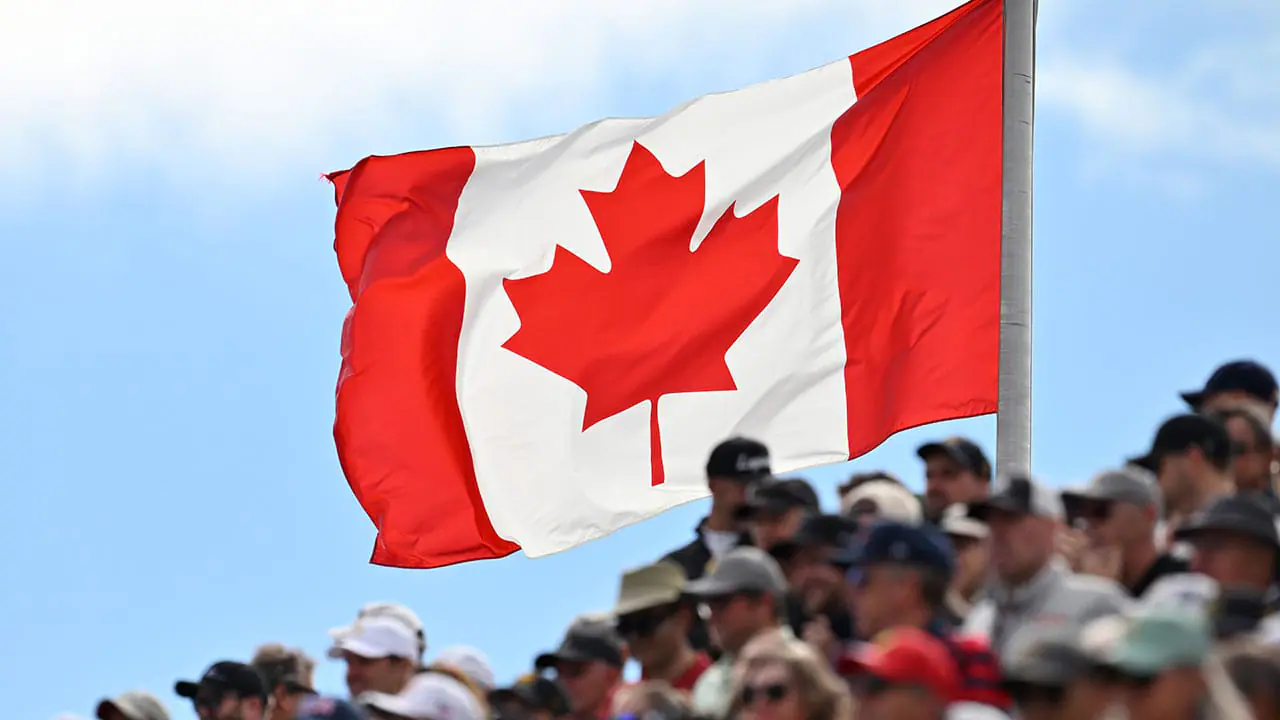Trudeau: No ‘snowball’s chance’ Canada will be part of U.S. despite Trump’s call
TORONTO (CTV Network) — Prime Minister Justin Trudeau said “there isn’t a snowball’s chance in hell that Canada would become part of the United States,” on the same day U.S. President-elect Donald Trump declared that he’s open to using “economic force” to acquire Canada.
Trump, speaking at a press conference at Mar-a-Lago, refused to rule out the use of military force to seize control of the Panama Canal and Greenland. He was also asked if he was considering using military force to acquire Canada.
“No, economic force,” he responded. “Because Canada and the United States, that would really be something.”
“You get rid of that artificially drawn line, and you take a look at what that looks like, and it would also be much better for national security. … We basically protect Canada.”
Trump has repeatedly suggested Canada could merge with the U.S. The first widely-reported example came during a Canadian delegation’s visit to Mar-a-Lago in early December, which Trudeau attended. Canadian officials chalked up Trump’s comments as a tease, but it appears the president-elect has since started to take the idea seriously.
“We’re losing $200 billion a year and more to protect Canada, and I said that to, as I called him, ‘Governor Trudeau.’ I said, ‘Listen, what would happen if we didn’t subsidize you?’ He said, ‘Canada would dissolve,’” Trump claimed.
In the past, Trump has accused Canada of accepting a $100-billion subsidy from the United States. It’s unclear exactly what he is referencing, but it may refer to the trade deficit between the two countries. A trade deficit occurs when the dollar value of a country’s imports is more than its exports. In 2023, the U.S. trade deficit with Canada was US$41 billion.
But on Tuesday, that purported $100-billion subsidy rose to $200 billion. CTVNews.ca has reached out to Trump’s media office to clarify what the $200-billion figure represents.
“I love the Canadian people, they’re great,” he said. “We’re spending hundreds of billions a year to take care of Canada. … We can’t do it forever.”
Shortly after Trump made his comments, Trudeau responded on social media.
“There isn’t a snowball’s chance in hell that Canada would become part of the United States. Workers and communities in both our countries benefit from being each other’s biggest trading and security partner.”
Canadian Foreign Affairs Minister Melanie Joly also lamented Trump’s comments, adding they “show a complete lack of understanding of what makes Canada a strong country,” she wrote on X.
“Our economy is strong. Our people are strong. We will never back down in the face of threats.”
Joly is widely considered a potential successor to Justin Trudeau, who announced he would resign from Liberal leadership on Tuesday, and eventually from his post as prime minister.
U.S. President Joe Biden, meanwhile, wrote in a statement that he spoke with Trudeau on Monday. That day, Trudeau announced he would step down from Liberal leadership and eventually relinquish his position as prime minister.
Biden thanked Trudeau, calling him a “friend,” and adding “the world is better off because of him.”
“Over the last decade, Prime Minister Trudeau has led with commitment, optimism, and strategic vision. The U.S.-Canada alliance is stronger because of him. The American and Canadian people are safer because of him. And the world is better off because of him,” wrote the president.
Trudeau assumed power in 2015 towards the end of Barack Obama’s presidency. Biden was vice-president then. Nearly a decade later, Biden is preparing to hand the keys to the Oval Office to Trump, and Trudeau is leaving the PMO as the country braces for a tariff war with the United States.
“Together, we’ve tackled some of the toughest issues our nations faced in decades,” the letter continues, “from the COVID-19 pandemic, to climate change, to the scourge of fentanyl.”
The last point – the “scourge of fentanyl” – will remain a sticking point between Trump and the next prime minister. The president-elect mentioned controlling the dangerous drug as a condition to avoid 25 per cent tariffs on Canadian exports to the U.S. when he assumes power.
The tariffs could seriously impact trade between the two countries. Last year, from January to November, the U.S. exported C$461.5 billion in goods to Canada and imported C$540.3 billion. The U.S. International Trade Association called the trade relationship the world’s largest and most comprehensive, supporting millions of jobs in each country.
“We have made generational investments to strengthen our supply chains and rebuild our economies from the bottom up and middle out—establishing North America as the most economically competitive region in the world,” Biden wrote.
“I am proud to call him my friend. And I will be forever grateful for his partnership and leadership.”
Biden’s letter comes in stark contrast to Trump’s response to Trudeau’s resignation.
In a Truth Social post on Monday, Trump once again referred to Canada as the United States’ 51st state, adding the U.S. “can no longer suffer the massive Trade Deficits and Subsidies that Canada needs to stay afloat.”
“Justin Trudeau knew this, and resigned,” he wrote. “If Canada merged with the U.S., there would be no Tariffs, taxes would go way down … Together, what a great Nation it would be!!!”
On Tuesday, Trump also repeated his conversation with hockey star Wayne Gretsky.
“I have so many great friends (in Canada). One of them is ‘The Great One’: Wayne Gretzky,” Trump mused.
“I told him run for prime minister … You’ll win in two seconds,” he said, possibly referring to the widely publicized Christmas Day visit between the president-elect and Gretzky.
“He said, ‘Well, am I going to run for prime minister or governor? You tell me,’” Trump recounted. “I said, ‘Let’s make it governor. I like it better.’”
CNN Newsource provided this story.
